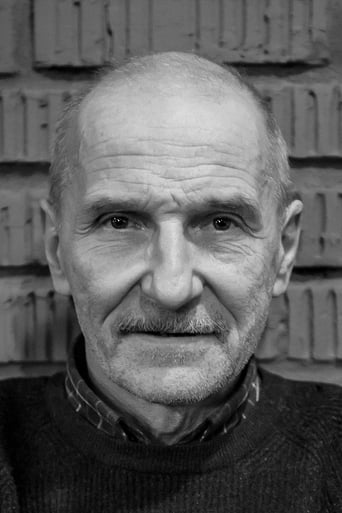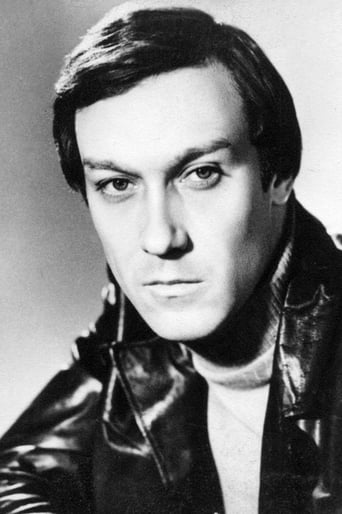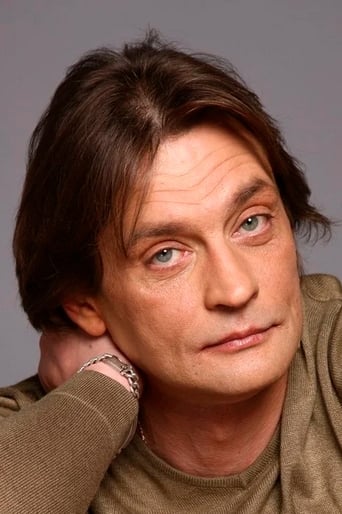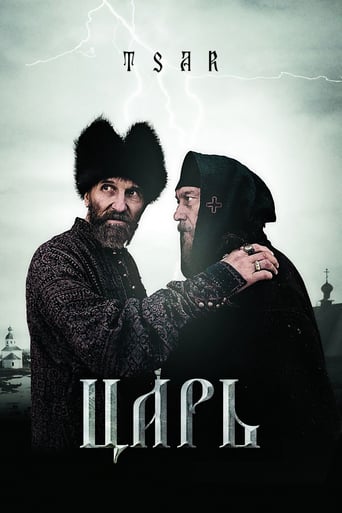
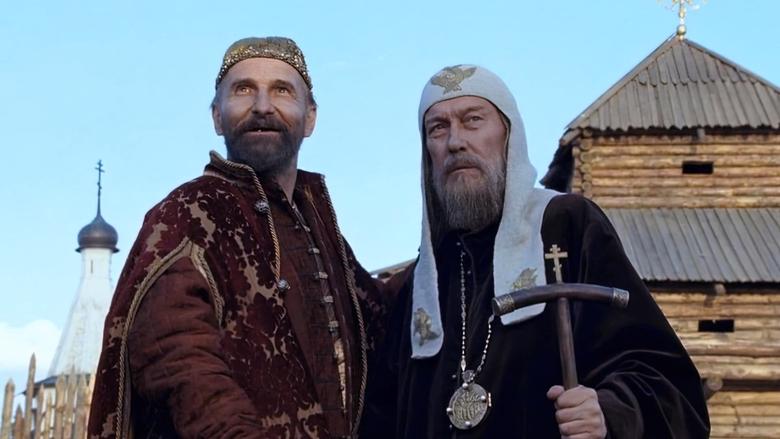
Tsar (2009)
In 16th-century Russia in the grip of chaos, Ivan the Terrible strongly believes he is vested with a holy mission. Believing he can understand and interpret the signs, he sees the Last Judgment approaching. He establishes absolute power, cruelly destroying anyone who gets in his way. During this reign of terror, Philip, the superior of the monastery on the Solovetsky Islands, a great scholar and Ivan's close friend, dares to oppose the sovereign's mystical tyranny. What follows is a clash between two completely opposite visions of the world, smashing morality and justice, God and men. A grand-scale film with excellent leading roles by Mamonov and Yankovsky. An allegory of Stalinist Russia
Watch Trailer
Cast
Reviews
The Worst Film Ever
Blistering performances.
An old-fashioned movie made with new-fashioned finesse.
It's a feast for the eyes. But what really makes this dramedy work is the acting.
And this is a serious film? A history lesson? A true depiction of real events? I am sorry, but some on, this is a real mess. It is so awful, so in-cohesive, so terribly poor that I was laughing. Well, everything is painfully wrong here - choice of Pyotr Mamonov as a Tsar Ivan The Terrible is the first and worst error - he just is a mere buffoon and horrid performer, overplaying almost every aspect, and instead of a paranoid tyrant we see a psychotic idiot with whimsical ticks. The great late Oleg Yankovski as Fillip is pale and bland, while Ivan Okhlobystin as a Tsar's jester is a simple clown with no merit. And the list goes on - the film is excruciatingly slow, painfully boring, stale and languid. Even the battle scenes and execution scenes are just a twitching mess and a true throwaway. What happened? Poor casting, poor script, poor pacing, poor camera work and very vapid message. No message. What we got was a tepid fetid livid stale pale brew. Awful and weak
I saw that this film had won the Nike award (Russian equivalent of Oscar), so took advantage of a showing on the Russian channel on DirectTV (unsubtitled). I checked out the "Hollywood Reporter's" review of the showing in Cannes, and the first line of that review corresponds to the first comment I would post myself, relating it to Tarkovsky's "Andrei Rublev"(1967) and Eisenstein's "Ivan the Terrible." (1944)While the title of the film is "Tsar," the personality of the Metropolitan Fillip, played by Oleg Yankovsky, really dominates. Ivan is viewed through Andrei's eyes, and is judged by his values. Like Tarkovsky's "Rublev" Fillip attempts to find spiritual meaning in the harshness of his times, and Ivan at first come across as an object of pity to whom the church father attempts to give spiritual guidance. The film presents of trinity of "Holy Fools" (Iurodyvye), who traditionally speak prophetic truth to power - in the persons of Fillip, the little girl, an the jester (whose revelations of Ivan's cruelty are for the film-viewers alone). Ivan tells Fillip to speak the truth to him, but becomes progressively more opposed to the holy truth and therefore more and more "terrible."Stalin found confirmation for the "great man" approach to history in Eisenstein's earlier historical epics, but Eisenstein's "Ivan the Terrible,Part II" was banned when the historical necessity argument gave way to grotesque depiction of the oprichniki and the murder of a young pretender to the throne. Lungin's gritty realism is the director's means of unmasking the tsar's barbarity. The magnificence of the regal costuming and sets do not startle the viewer with pageantry, but rather offer a grotesque contrast between the mask of wealth on display in the presence of masses violently spilled blood.What may appear as "straightforward storytelling" is in many ways a polemic with historical narratives of the past. Ivan is most terrible in the power that he wields through insanity and belief in his role as God's appointed servant.
We all know Ivan the Terrible was a mad tyrant, and many know that Philip was a Saint. The film shows little more, and little depth to Ivan, and none to any other character beyond Philip. Why does Ivan act the way he does? Is it just madness? Or is it related as some say to the death of his wife? Or to religious extremism? The film doesn't say. Why do the lesser characters behave the way they do? The film doesn't hint at any explanation. Why is such a mad tyrant able to rule? The film doesn't say (hint: he actually accomplished a lot in the earlier part of his rule). The film implies all the churchmen were saints, when in fact many (understandably) collaborated with Ivan. It is beautifully filmed, and well acted, but ultimately shallow.
The plot of the movie covers a short term of the rule of the Russian Tsar Ivan the Terrible during one of the most controversial periods of Medieval Russia – Oprichnina. Many Russian aristocrats with whole families were put in disgrace, exiled and executed. Sigismund, the King of Poland, invaded western borders of the country, Novgorod the Great has risen against the Tsar. Being terrified by Oprichnina, old and week Metropolitan Afanasiy resigned and left Moscow. The Tsar, feeling lonely, rushing about his obsession of the forthcoming end of the world and Judgment Day, being on the verge of insanity called for the Solovetsky Monastery abbot Phillip Kolychev, his childhood friend. Phillip has moved to Moscow and against his will was appointed on the metropolitan see. Being shocked by the bloodthirstiness of Tsar's party, Phillip bravely tells Ivan the Terrible the truth. Wrathful Tsar put the metropolitan into disgrace, exiled him and later killed secretly, as well as Phillip's nephew and his fellow warlords for the false accusation of yielding up Polotsk to Sigismund.In my opinion this movie is more likely a simple narration without any deep moral message in it, being less successful work of Pavel Lungin then previous "Ostrov". Lungin made a colourful historical novel, though leaving an incompleteness of the plot, without evolving the drama to the logical completion.
